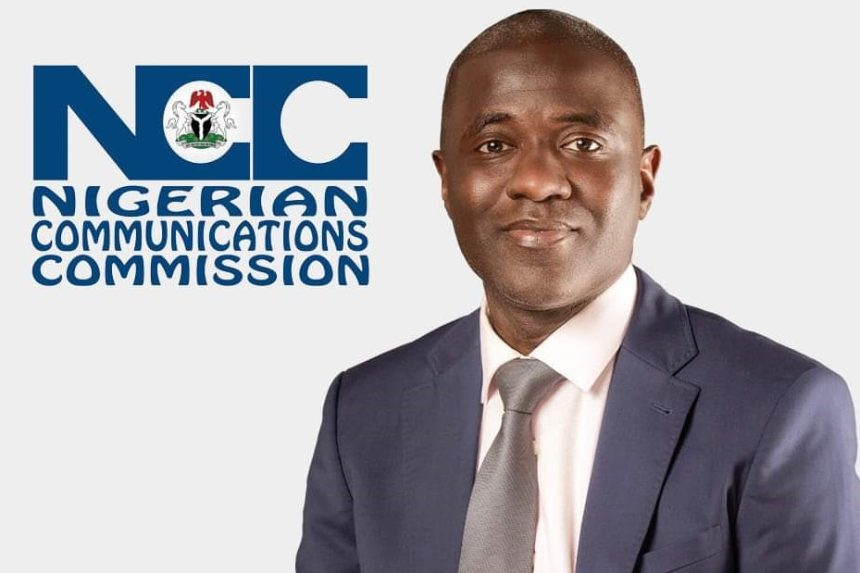In a bold step towards strengthening Nigeria’s digital economy and future-proofing its telecommunications sector, the Nigerian Communications Commission, NCC, has unveiled the draft general authorisation framework — a new regulatory initiative designed to enable innovation, encourage investment, and promote inclusivity in the telecom space.
The announcement was made on Thursday by the Executive Vice Chairman and Chief Executive Officer of the NCC, Dr. Aminu Maida, during a high-level stakeholders forum on the framework.
The forum brought together directors of the NCC, top executives of telecom companies, leaders of telecom associations, innovators, tech entrepreneurs, and other key industry players.
In his welcome address, Maida acknowledged the participants’ presence and emphasized the significance of their engagement, stating that their collaboration reinforced a shared vision for a digitally inclusive Nigeria.
He noted that the telecommunications sector had recorded phenomenal growth since its liberalization over two decades ago, with tele-density reaching 79.65% and broadband penetration hitting 48.81% as of May 2025.
According to Maida, the growth had been largely driven by the increased use of mobile technologies, rising data consumption, and growing interest in digital services.
He stressed, however, that the sector was already at a critical transition point, where existing regulatory models must evolve to accommodate the fast-paced nature of innovation and new digital solutions.
“The future is no longer far off—it is unfolding right before us. And at the heart of this future is the communications sector, which now serves as a vital infrastructure for innovation, inclusion, and national development,” the NCC boss said.
READ ALSO: FEC: Tinubu renames UNIMAID after Buhari, pays tribute +Photos
To address the shift, he said, the NCC had proposed a General Authorisation Framework—a regulatory model aimed at enhancing flexibility, encouraging responsible innovation, and accommodating services that do not currently fall within Nigeria’s existing telecom license categories.
The framework introduces three key regulatory instruments which are proof-of-concept pilots to validate novel ideas in real-world environments; regulatory sandbox, which allows innovators to test solutions—such as Open RAN trials, or dynamic spectrum sharing—under controlled and risk-managed conditions and an Interim Service Authorisation for services that do not yet fit within existing license categories.
Maida explained that the objective was not only to create a space for innovation but also to ensure that the sector continued to grow in a way that was safe, consumer-focused, and in the public interest.
He described the new approach as a shift from restrictive regulation to enabling governance, positioning Nigeria’s telecom ecosystem to better respond to evolving technological trends such as 5G deployment, artificial intelligence, blockchain, fintech, and smart networks.
“Modern regulation must be designed to enable innovation rather than hinder it. Through this framework, we aim to support startups and established companies alike, giving them room to grow, test, and thrive while ensuring proper oversight,” he said.
However, Maida stressed that the success of the initiative was heavily dependent on stakeholder participation and collaboration.
He called on mobile network operators, infrastructure providers, original equipment manufacturers, service providers, academic institutions, civil society organizations, and other partners to lend their voices, share feedback, and play an active role in shaping the future of the sector.
“Your insights and partnership are crucial in refining this new regulatory direction and ensuring it is practical, inclusive, and impactful for Nigeria,” he stated.
In his concluding remarks, the EVC emphasized the need for bold and unified efforts to close the digital divide and extend the benefits of technology to communities.
He reaffirmed the commission’s commitment to using regulation as a tool to deepen digital access, encourage local content development, and drive national transformation.
“Let us work together to build a resilient, innovative, and inclusive digital ecosystem. With the General Authorisation Framework, we are unlocking new opportunities for growth, investment, and national progress,” he concluded.
The NCC boss concluded with a strong call for collaboration and dialogue, as it sought feedback and input to further refine the draft framework before its formal implementation.














